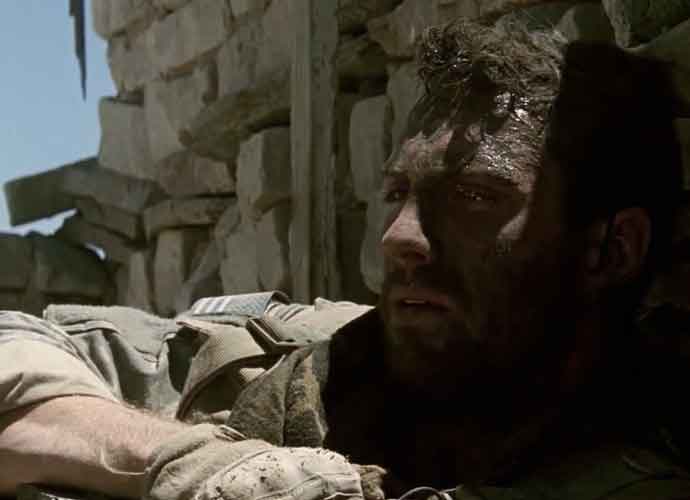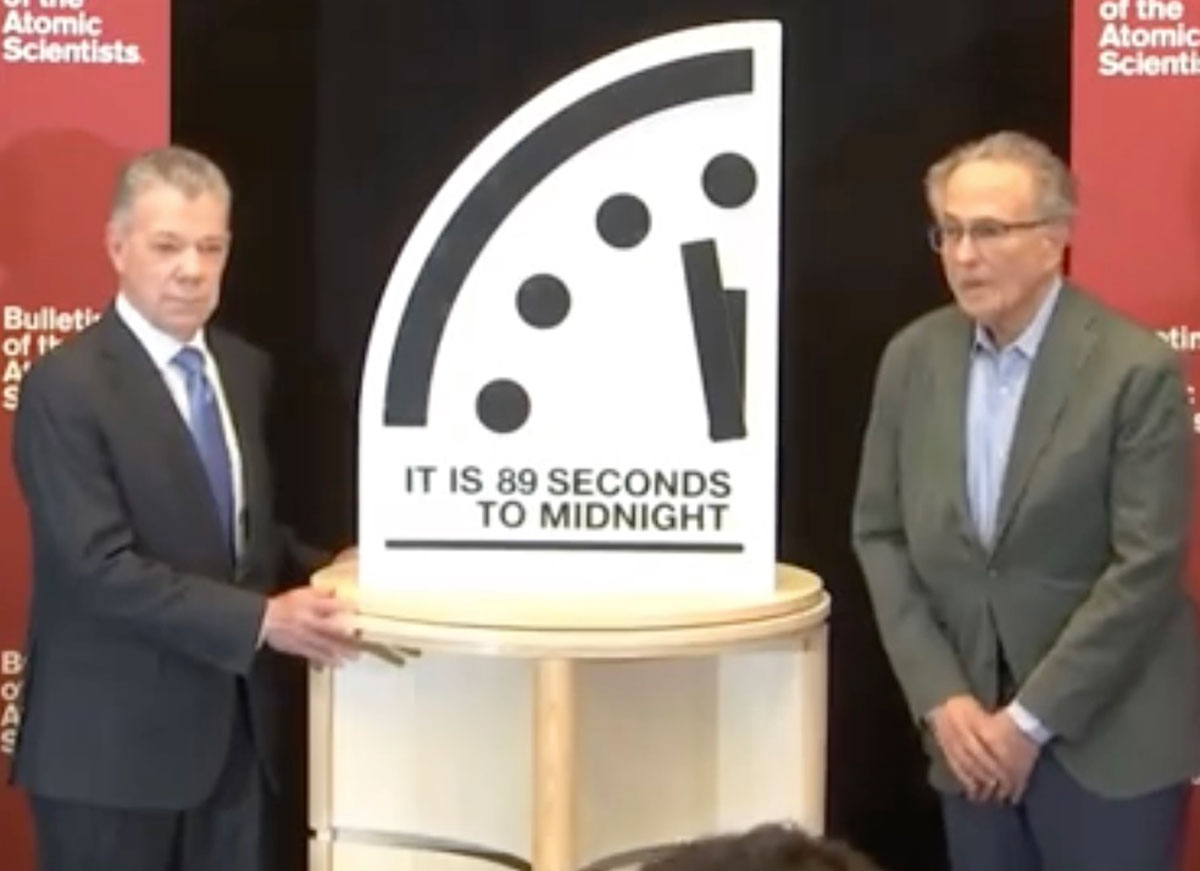‘The Wall’ Review: Iraq War Era Film Thrills, Gets Slightly Political

4/5
Build that wall, or tear down that wall – American foreign policy seems to have a thing for walls. And now we have The Wall, the new film from Amazon Studios staring Aaron Taylor-Johnson, John Cena, and Laith Nakli. While the film may not loom as large as walls from foreign policy past, this one may prove to be just as divisive.
The Wall, directed by Doug Liman (Mr. & Mrs. Smith, The Bourne Identity), follows two soldiers, trapped in an Iraqi desert, as they are hunted by a mythical enemy sniper.
We first meet SSG Mathews (Cena) and SGT Isaac (Taylor-Johnson) the side of a hill, decked out in all sorts of camouflage. They have been scoping out a horrid scene in the valley below for over 20 hours. Eight bodies lay strewn across the desert, all with gun shots straight into their heads. From the looks of it, a group of civilian contractors were building an oil pipeline when they were shot at. A rescue team came to save them but they met a similar fate.
Assuming the sniper has left, Mathews foolishly heads down into the valley to put an end to the question. He is promptly shot in the stomach. Isaac comes down to save him and he too is shot, but only in the knee. He jumps behind a crumbling wall made of stones and calls his superiors for help. As it turns out, the sniper has hijacked their communications system and Isaac has no one to talk to but his enemy.
The Wall is shot in a single location – that location is the wall, if you hadn’t guessed – and while a single location can grow tiresome, The Wall manages to keep it somewhat interesting. There is a tremendous sense of place, aided by a flat, shining sun, and frequent dust storms. No matter where you may be when you watch the film, you will feel claustrophobic.
All three performances by the film’s cast are well executed although we only hear Nakli’s voice and never see his face. Taylor-Johnson carries the film like he carries his military gear – that is to say, he does it well and efficiently, but he grunts a lot.
Like any single location film, getting backstory on the characters can be tough. The Wall does a bit too much of telling instead of showing but this is not a new problem for films of this type.
The biggest hang-up with The Wall is it’s message, if there is one. The film takes place in 2007, towards the end of the Iraq war, after President George W. Bush has declared victory. The victory we see is no victory at all. There is no pipeline bringing economic prosperity to local Iraqis and instead, dead bodies litter an empty construction site with a five-story pile of garbage looming in the distance. So, ok, war is bad and only brings destruction, right? Not so fast.
The mysterious sniper is faceless, allowing the audience to plaster any stereotypical Middle Easterner to the sadistic voice they hear. Although the film attempts to humanize him, there is little doubt that he is pure evil. So, ok, war is necessary because there are good guys and, like, really, really bad guys? Maybe?
And maybe that’s the whole point – war is confusing and awful and we, as humans, as Americans, will always find a new justification to fight.
But mostly, The Wall is just a decent psychological thriller/action film that also happens to makes you think. No need to build it up any bigger than it has to be.
The Wall hits theaters on Friday, May 12.
RELATED ARTICLES
Get the most-revealing celebrity conversations with the uInterview podcast!


 Click here for the Oscars 2017: 10 Best Dressed Photos Slideshow
Click here for the Oscars 2017: 10 Best Dressed Photos Slideshow



Leave a comment